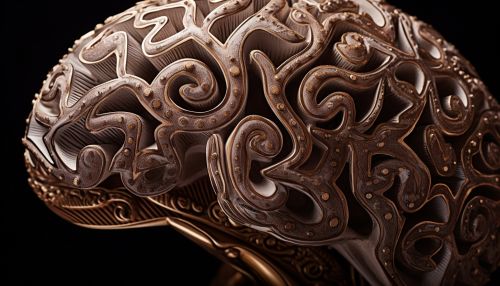Memory Disorders
Overview
Memory disorders are a group of conditions that affect a person's ability to remember, recall, and process information. These disorders can be caused by a variety of factors, including brain injury, neurological disease, psychological trauma, or certain medical conditions. Memory disorders can significantly impact a person's daily life, affecting their ability to work, maintain relationships, and carry out everyday tasks.
Types of Memory Disorders
There are several different types of memory disorders, each with its own set of symptoms and causes.
Alzheimer's Disease
Alzheimer's disease is a progressive brain disorder that affects memory, thinking skills, and the ability to carry out simple tasks. It is the most common cause of dementia in older adults.


Vascular Dementia
Vascular dementia is a general term describing problems with reasoning, planning, judgment, memory and other thought processes caused by brain damage from impaired blood flow to your brain.
Mild Cognitive Impairment
Mild cognitive impairment (MCI) is a condition that can involve problems with memory, language, thinking and judgment that are greater than normal age-related changes.
Dementia with Lewy Bodies
Dementia with Lewy bodies (DLB) is a type of progressive dementia that leads to a decline in thinking, reasoning and independent function because of abnormal microscopic deposits that damage brain cells over time.
Frontotemporal Dementia
Frontotemporal dementia (FTD) is an umbrella term for a group of uncommon brain disorders that primarily affect the frontal and temporal lobes of the brain.
Huntington's Disease
Huntington's disease is a rare inherited disease that causes the progressive breakdown (degeneration) of nerve cells in the brain.
Wernicke-Korsakoff Syndrome
Wernicke-Korsakoff syndrome (WKS) is a neurological disorder caused by a lack of thiamine (vitamin B1) in the brain.
Causes of Memory Disorders
Memory disorders can be caused by a variety of factors, including:
- Brain injury: This can result from a traumatic brain injury (TBI), such as a blow to the head, or a stroke, which can damage areas of the brain involved in memory. - Neurological diseases: Conditions such as Alzheimer's disease, Parkinson's disease, and multiple sclerosis can all cause memory problems. - Psychological trauma: Severe emotional stress or trauma can cause memory loss or the development of false memories. - Medical conditions: Certain medical conditions, such as thyroid disorders, vitamin deficiencies, and infections can affect memory. - Medications: Some medications, particularly those used for sedation or anesthesia, can cause temporary memory loss.
Symptoms of Memory Disorders
The symptoms of memory disorders can vary widely, depending on the type of disorder and the individual's overall health. Some common symptoms include:
- Difficulty remembering recent events or conversations - Trouble following directions or instructions - Problems with language, such as difficulty finding the right words - Changes in mood or behavior - Confusion or disorientation - Difficulty performing familiar tasks
Diagnosis of Memory Disorders
Diagnosing a memory disorder typically involves a comprehensive evaluation, which can include a physical examination, a review of the individual's medical history, and cognitive testing. In some cases, imaging tests such as a CT scan or MRI may be used to look for abnormalities in the brain.
Treatment of Memory Disorders
Treatment for memory disorders depends on the underlying cause. In some cases, treating the underlying condition can improve memory. For example, if a memory disorder is caused by a vitamin deficiency, supplementing with the missing vitamin may improve memory.
In other cases, such as with Alzheimer's disease, there is no cure, but treatments can help manage symptoms. This can include medications to slow the progression of the disease, as well as therapies to help manage behavioral symptoms.
Prevention of Memory Disorders
While not all memory disorders can be prevented, there are steps that individuals can take to reduce their risk. These include maintaining a healthy lifestyle, with regular exercise, a balanced diet, and adequate sleep. Avoiding harmful behaviors, such as smoking and excessive alcohol consumption, can also reduce risk.
See Also
- Neurodegenerative Diseases - Cognitive Disorders - Brain Health
